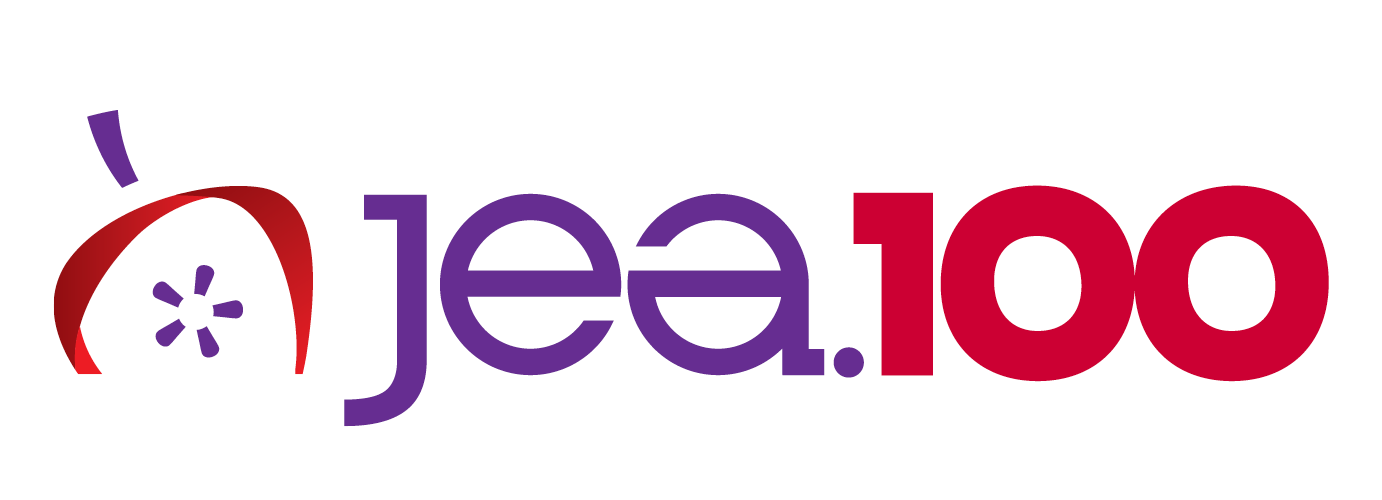
The JEA/NSPA National High School Journalism Convention is the largest gathering of high school journalists in the country.
Typically, the on-site conventions comprise around 300 breakout sessions. All attendees, speakers and vendors will need to show proof of vaccination.
If you have any questions about the spring convention, contact JEA Assistant Director Lindsay Porter through email at NHSJC@jea.org.
Speaker proposals for the spring convention are due Dec. 15 to be included in the registration booklet but are accepted after the deadline.
Speaker proposals
If you are willing and able to participate in the spring convention, please complete this short form.
The form includes:
- Session topic
- Session title
- Session description
- Speaker biography
- Speaker contact information
- Speaker availability
Session proposals
Members and other individuals interested in supporting the goals and programs of JEA, NSPA and scholastic journalism are invited to submit convention program proposals for sessions at the national convention. This invitation is extended to teachers/advisers, professional journalists and students in editorial-leadership positions. Proposals must be received by Dec. 15 (spring convention) or July 15 (fall convention), to be listed in the registration booklet. If the deadline has passed, please contact Lindsay Porter at 785-532-5563 or Porter@jea.org to see if speaking times are still available.
Each person submitting a proposal will be notified by email six to eight weeks before the convention of the status of that proposal.
The number of proposals accepted will be determined by the number of rooms and available time slots. The program committee will look for variety and coverage of topics appropriate for student journalists involved in yearbooks, newspapers, newsmagazines, literary magazines, online news and broadcasting. In addition, the committee will consider topics appropriate for advisers.
Advisers, professionals and student are invited to submit proposals on topics including, but not limited to, these curricular areas:
- Design — basics of design, typography, use of color, white space, front page design, double-page spread design, trends, infographics
- Editing — copy editing, style, coaching writers, online editing
- Marketing and Audience Engagement — business, marketing, digital publicity, sales, public relations, social media promotions, branding
- Law and Ethics — First Amendment, libel, court cases important to student media, copyright, plagiarism, reporter’s privilege, ethics, privacy, rights and responsibilities, establishing staff policies
- Leadership and Team Building — staff manuals, job descriptions, organizing a staff, recruiting a staff, planning staff retreat, leadership portfolios, diversity in staff and coverage, developing a grading system, ice breakers, building a parent/alumni support organization, end-of-the-year activities, organization for group photo or yearbook distribution days)
- Multimedia Broadcast — pre-production, script writing, storyboarding, lighting, videography and editing, audio, video storytelling, on-air reporting, podcasting, tools and equipment
- Newsgathering — news judgment, journalistic research, investigative reporting, interviewing basics, news gathering basics, using public documents, conducting a press conference, reporting with social media, data journalism
- News Literacy — understanding news literacy, why news matters, advocacy journalism, information gathering, fact checking in the digital age, truth and social media, funding models for news, evaluating website credibility
- Online — defining an audience, budgeting, information design, basic HTML, online writing, social media, staff structure and workflow, advanced web skills, creating a design style guide, tools and resources
- Photojournalism — history and ethics, composition basics, caption writing, tips and tricks, sports photography, portrait photography, photo editing, working with reporters/editors, photography and social media, image workflow/organization, preparing a portfolio
- Writing — basics of journalistic writing, revision, using quotes, headlines, feature writing, news writing, opinion writing, sports writing
We also welcome session proposals tailored specifically for advisers about the classroom and publication management, as well as sessions aimed at students about college and career preparedness.
Program information
- The speaker proposal is designed for equitable and expeditious reviewing of proposals.
- As professional, nonprofit associations, JEA and NSPA are unable to reimburse program participants for travel and lodging expenses. However, speakers who present two or more sessions (or present one session and judge or critique) and are members of either JEA or NSPA are exempt from the registration fee. In the case of multiple presenters from one school or team-taught sessions, only two fees will be waived without special permission from JEA and NSPA.
- Students in leadership positions are encouraged to submit proposals. It is recommended that not more than three students present any one session. There are no student fee waivers for speaking. The adviser should be at the session to assist if necessary.
- Acceptance or rejection of a proposal will be issued in September (fall) and February (spring). Proposers should be sure they have approval from administrators to attend the convention before submitting a proposal.
- Proposals whose essential purpose is to advertise or disseminate information about books, materials or services for sales will not be accepted. Exhibit space and advertising in the program will be available for sale.
- No proposal will be disqualified from consideration because it requires audio-visual equipment but with a limited budget for equipment rental, program proposers should indicate the need for AV equipment only if it is essential. Not all convention spaces have internet access. This must be requested on the speaker form.
- The program proposal form provides a space for description of the presentation that will be used in the program. Proposers are urged to provide clear, brief and specific descriptions of the session.
- Membership in JEA or NSPA is not required for convention program participation; however, in cases of equally good proposals on similar topics, proposals submitted by members may be favored. Proposals should be received no later than Dec. 15 for spring conventions and July 15 for fall convention (preferably well before this date).
Email questions about the speaker proposal to NHSJC@jea.org.
Convention style guide
Official name: Spring JEA/NSPA National High School Journalism Convention.
Spring convention or national high school journalism convention on second reference. Not JEA convention or NSPA convention.
#nhsjc used for social media
